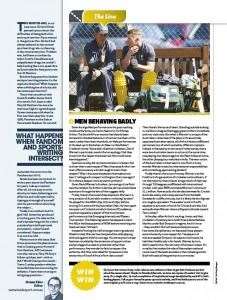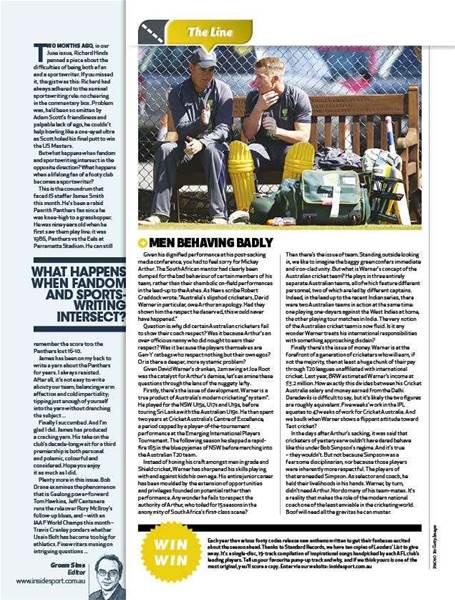You had to feel sorry for Mickey Arthur.
Given his dignified performance at his post-sacking media conference, you had to feel sorry for Mickey Arthur. The South African mentor had clearly been dumped for the bad behaviour of certain members of his team, rather than their shambolic on-field performances in the lead-up to the Ashes. As News scribe Robert Craddock wrote: “Australia’s slipshod cricketers, David Warner in particular, owe Arthur an apology. Had they shown him the respect he deserved, this would never have happened.”
Question is: why did certain Australian cricketers fail to show their coach respect? Was it because Arthur’s an over-officious nanny who did nought to earn their respect? Was it because the players themselves are Gen-Y ratbags who respect nothing but their own egos? Or is there a deeper, more systemic problem?
Given David Warner’s drunken, 2am swing at Joe Root was the catalyst for Arthur’s demise, let’s examine these questions through the lens of the nuggety lefty.
Firstly, there’s the issue of development. Warner is a true product of Australia’s modern cricketing “system”. He played for the NSW U15s, U17s and U19s, before touring Sri Lanka with the Australian U19s. He then spent two years at Cricket Australia’s Centre of Excellence, a period capped by a player-of-the-tournament performance at the Emerging International Players Tournament. The following season he slapped a rapid-fire 165 in the blue pyjamas of NSW before marching into the Australian T20 team.
Instead of honing his craft amongst men in grade and Shield cricket, Warner has sharpened his skills playing with and against kids his own age. His entire junior career has been moulded by the extension of opportunities and privileges founded on potential rather than performance. Any wonder he fails to respect the authority of Arthur, who toiled for 15 seasons in the anonymity of South Africa’s first-class scene?
Then there’s the issue of team. Standing outside looking in, we like to imagine the baggy green confers immediate and iron-clad unity. But what is Warner’s concept of the Australian cricket team? He plays in three entirely separate Australian teams, all of which feature different personnel, two of which are led by different captains. Indeed, in the lead up to the recent Indian series, there were two Australian teams in action at the same time: one playing one-dayers against the West Indies at home, the other playing tour matches in India. The very notion of the Australian cricket team is now fluid. Is it any wonder Warner treats his international responsibilities with something approaching disdain?
Finally there’s the issue of money. Warner is at the forefront of a generation of cricketers who will earn, if not the majority, then at least a huge chunk of their pay through T20 leagues unaffiliated with international cricket. Last year, BRW estimated Warner’s income at $3.2 million. How exactly this divides between his Cricket Australia salary and money earned from the Delhi Daredevils is difficult to say, but it’s likely the two figures are roughly equivalent. Five weeks’ work in the IPL equates to 47 weeks of work for Cricket Australia. And we baulk when Warner shows a flippant attitude toward Test cricket?
In the days after Arthur’s sacking, it was said that cricketers of yesteryear wouldn’t have dared behave like this under Bob Simpson’s regime. And it’s true – they wouldn’t. But not because Simpson was a fearsome disciplinarian, nor because those players were inherently more respectful. The players of that era needed Simpson. As selector and coach, he held their livelihoods in his hands. Warner, by turn, didn’t need Arthur. Nor do many of his team-mates. It’s a reality that makes the role of the modern national coach one of the least enviable in the cricketing world. Boof will need all the gravitas he can muster.
Related Articles

Urn earned but tide turned

Cam smiling in the rain as he vows to win back Jug


.png&h=115&w=225&c=1&s=1)










